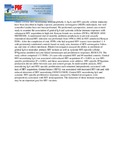| dc.contributor.author | Hirbod, T | |
| dc.contributor.author | Kaul, R | |
| dc.contributor.author | Reichard, C | |
| dc.contributor.author | Kimani, J | |
| dc.contributor.author | Ngugi, Elizabeth N | |
| dc.contributor.author | Bwayo, JJ | |
| dc.contributor.author | Nagelkerke, N | |
| dc.contributor.author | Hasselrot, K | |
| dc.contributor.author | Moses, S | |
| dc.contributor.author | MacDonald, KS | |
| dc.contributor.author | Broliden, K | |
| dc.date.accessioned | 2013-06-29T08:16:50Z | |
| dc.date.available | 2013-06-29T08:16:50Z | |
| dc.date.issued | 2008-03 | |
| dc.identifier.citation | Hirbod T, Kaul R, Reichard C, Kimani J, Ngugi E, Bwayo JJ, Nagelkerke N, Hasselrot K, Li B; HIV-neutralizing immunoglobulin A and HIV-specific proliferation are independently associated with reduced HIV acquisition in Kenyan sex workers.AIDS. 2008 Mar 30;22(6):727-35.; , Moses S;, MacDonald KS, Broliden K; HIV-neutralizing immunoglobulin A and HIV-specific proliferation are independently associated with reduced HIV acquisition in Kenyan sex workers. | en |
| dc.identifier.uri | http://www.ncbi.nlm.nih.gov/pubmed/18356602 | |
| dc.identifier.uri | http://erepository.uonbi.ac.ke:8080/xmlui/handle/123456789/42175 | |
| dc.description.abstract | OBJECTIVES:
HIV-neutralizing immunoglobulin A (IgA) and HIV-specific cellular immunity have been described in highly exposed, persistently seronegative (HEPS) individuals, but well controlled studies have not been performed. We performed a prospective, nested case-control study to examine the association of genital IgA and systemic cellular immune responses with subsequent HIV acquisition in high-risk Kenyan female sex workers (FSWs).
DESIGN AND METHODS:
A randomized trial of monthly antibiotic prophylaxis to prevent sexually transmitted disease/HIV infection was performed from 1998 to 2002 in HIV-uninfected Kenyan FSWs. After the completion of trial, FSWs who had acquired HIV (cases) were matched 1: 4 with persistently uninfected controls based on study arm, duration of HIV-seronegative follow-up, and time of cohort enrolment. Blinded investigators assayed the ability at enrolment of genital IgA to neutralize primary HIV isolates as well as systemic HIV-specific cellular IFNgamma-modified enzyme-linked immunospot and proliferative responses.
RESULTS:
The study cohort comprised 113 FSWs: 24 cases who acquired HIV and 89 matched controls. Genital HIV-neutralizing IgA was associated with reduced HIV acquisition (P = 0.003), as was HIV-specific proliferation (P = 0.002), and these associations were additive. HIV-specific IFNgamma production did not differ between case and control groups. In multivariable analysis, HIV-neutralizing IgA and HIV-specific proliferation each remained independently associated with lack of HIV acquisition. Genital herpes (HSV2) was associated with increased HIV risk and with reduced detection of HIV-neutralizing
CONCLUSION:
Genital HIV-neutralizing IgA and systemic HIV-specific proliferative responses, assayed by blinded investigators, were prospectively associated with HIV nonacquisition. The induction of these immune responses may be an important goal for HIV vaccines | en |
| dc.language.iso | en | en |
| dc.publisher | University of Nairobi, | en |
| dc.title | HIV-neutralizing immunoglobulin A and HIV-specific proliferation are independently associated with reduced HIV acquisition in Kenyan sex workers. | en |
| dc.type | Article | en |
| local.publisher | College of Health Sciences, | en |

